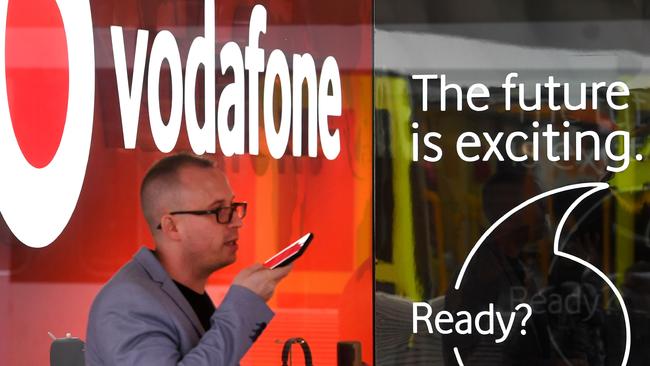Telstra, Optus the likely winners

The Australian Competition & Consumer Commission, which had reservations about the deal from the start, made it clear yesterday the $15 billion merger of the two telcos was a shortcut to growth it wasn’t willing to approve.
Instead, the regulator wants TPG to bite the bullet and return to building its own mobile network, even if there’s no clear guidance on how TPG will go about doing that.
But TPG’s plan B is crucial to the ACCC’s rationale for blocking the deal, with the regulator convinced that market forces will compel TPG to return to mobile.
As ACCC boss Rod Sims pointed out yesterday, TPG remains the last great hope of injecting competition in the mobile market, even after it stated in January that it doesn’t have the resources to build a mobile network that could be made ready for 5G. “TPG is the best prospect Australia has for a new mobile network operator to enter the market, and this is likely the last chance we have for stronger competition in the supply of mobile services,” Sims said.
The impending legal action will firmly test the regulator’s optimism, which isn’t shared by market watchers.
The telco’s original $600 million allocation to roll out the network is unlikely to be enough, so TPG will have to come up a method that gives it the best way to maximise the mobile spectrum it has at its disposal, without breaking the bank.
Rolling out mobile networks with a pathway to 5G is crucial for telcos but it’s a capital intensive business. With Huawei’s 5G equipment no longer available, both TPG and Vodafone will also have to consider the cost implications of buying 5G kit from Nokia and Ericsson.
TPG could potentially shelve mobile altogether and look for other alternatives.
One scenario would be for it to take leaf out of Optus’s book and roll out a more targeted fixed wireless network, which uses 4G/5G spectrum with a small cell network to connect homes that are underserved by the NBN and businesses that are reluctant to sign up to the network.
The other option would be for TPG to sell the spectrum but there are questions over whether it will be allowed to do so.
Given the fixation of the regulator to see TPG enter the market as a disruptive fourth mobile operator, the telco could struggle to find buyers for the spectrum, with Telstra and Optus likely to be stopped from buying the asset.
As for Vodafone, the ACCC expects it to keep working towards increasing its 1 per cent share of the fixed broadband market, while making its mobile networks 5G ready.
Neither telco will be looking forward to that prospect. The legal battle between them and the regulator will be closely contested and the rest of the industry will keep a close eye on the proceedings.
Telstra and Optus may not like the idea of TPG as a fourth mobile operator, but the protracted court battle will be a distraction for TPG and Vodafone, giving them more time to build a lead in the market.
In its bid to prevent a market dominated by three major mobile players, the ACCC may have ended up strengthening the “duopoly” of Telstra and Optus.



TPG Telecom and Vodafone Australia’s quest for scale has come crashing down in a heap, with both telcos now banking on a lengthy court tussle with the competition regulator to revive their multi-billion merger.